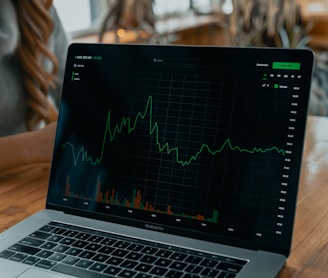Understanding the Risks and Benefits of Forex Trading
Forex trading, or foreign exchange trading, is the process of buying and selling currencies on the global market. With a daily trading volume of over $6 trillion, it is the largest and most liquid financial market in the world. While forex trading offers numerous benefits, it also comes with its fair share of risks. In this blog post, we will delve into the risks and benefits of forex trading to help you make an informed decision about whether this investment opportunity is right for you.
PERSONAL FINANCE TIPS
5/31/20232 min read


Benefits of Forex Trading:
High Liquidity: The forex market's high liquidity ensures that transactions can be executed quickly and easily, with minimal price slippage. This means that traders can take advantage of price movements and enter or exit positions with ease.
24-Hour Market: The forex market operates 24 hours a day, five days a week, allowing traders to participate in the market at any time. This flexibility is particularly beneficial for those who have other commitments during regular business hours.
Low Transaction Costs: Forex trading typically involves lower transaction costs compared to other financial markets, such as stocks or commodities. Most forex brokers make their money through the bid-ask spread, which is the difference between the buying and selling price of a currency pair.
Leverage: Forex trading allows for the use of leverage, which means that traders can control a larger position with a smaller amount of capital. This can amplify profits but also comes with increased risks, which we will discuss later in this post.
Diversification: Forex trading offers the opportunity to diversify an investment portfolio by providing exposure to different currencies and economies. This can help to spread risk and potentially improve overall returns.
Risks of Forex Trading:
Leverage Risk: While leverage can amplify profits, it can also magnify losses. If a trade moves against a trader's position, they may be required to deposit additional funds to maintain their position or face a margin call, which can result in significant losses.
Market Volatility: The forex market can be highly volatile, with exchange rates subject to rapid fluctuations. This can make it challenging for traders to predict price movements and manage their risk effectively.
Counterparty Risk: In forex trading, the counterparty to a trade is typically a broker or a financial institution. There is a risk that the counterparty may default on their obligations, which could result in losses for the trader.
Political and Economic Risk: Currency values are influenced by various factors, including political events, economic data releases, and changes in monetary policy. These factors can create uncertainty and lead to sudden shifts in exchange rates, which can impact a trader's positions.
Lack of Regulation: The forex market is decentralized and lacks a central regulatory authority. This can make it more susceptible to fraud and manipulation, so it's essential to choose a reputable broker when engaging in forex trading.
Conclusion:
Forex trading offers numerous benefits, such as high liquidity, 24-hour market access, low transaction costs, and the potential for diversification. However, it also comes with significant risks, including leverage risk, market volatility, counterparty risk, and political and economic uncertainties. To succeed in forex trading, it's crucial to understand these risks and develop a sound trading strategy that incorporates effective risk management techniques. By doing so, you can maximize the potential benefits of forex trading while minimizing the associated risks.
